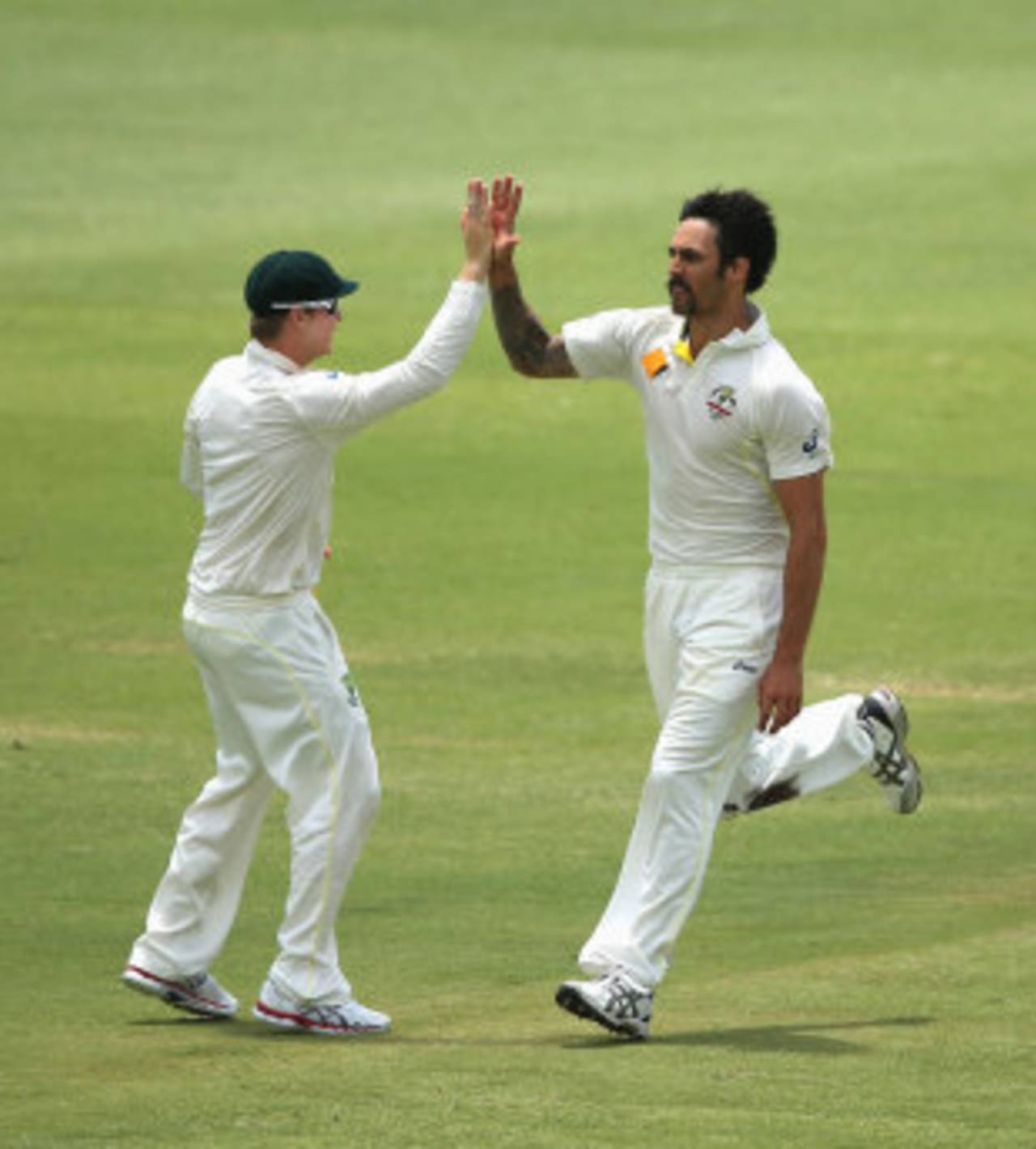Johnson, Warner blaze the trail
ESPNcricinfo looks at five reasons for Australia's dominance in winning back the Ashes

Mitchell Johnson took his tally to 23 wickets in the series at Perth • Getty Images
Mitchell Johnson would not have played at the Gabba had Australia had a fully fit corps of fast bowlers. James Pattinson and Mitchell Starc would likely have been ahead of him, maybe even Jackson Bird. Even when they were all ruled out due to injuries, it seemed a gamble to pick Johnson alongside Peter Siddle and Ryan Harris, given his fragile history against England. But Johnson had matured since his previous Ashes experiences - marriage and fatherhood had given him a sense of perspective - and he'd been searingly quick in the recent ODIs in India and in the early Sheffield Shield rounds. At the Gabba and Adelaide Oval, England had no answers to Johnson's pace and improved consistency and with strong support from Harris, Siddle and Nathan Lyon, they were repeatedly shot out. Johnson took 17 wickets in those two Tests, won both Man of the Match awards, and the Ashes were all but regained.
David Warner may become the most consistently destructive batsman in world cricket, or he may never reach this level of reliability again. But whatever happens, he has been enormously important in Australia's Ashes campaign, just as his failure to fire - or even allow himself to be selected - was critical in the Ashes in England this year. Had Michael Clarke not declared with him on 83 at Adelaide Oval, he may well have had three second-innings centuries from the first three Tests of the series. True, first-innings hundreds may have been preferable, but if the door was slightly ajar for England in any of those matches he slammed it shut on them. His power ensured there were no fightbacks.
And on the subject of fightbacks, Brad Haddin could vie with Johnson for the Player of the Series honour, if it was judged at this point. When he skewed a catch to point chasing quick runs in the second innings at the WACA, it was the first time in the series he had failed to reach fifty. Most importantly, his runs had come with the team under pressure. In Brisbane he came in at 5 for 100 and fell just short of a century but steered Australia to 295. In Adelaide he walked out at 5 for 257, and his hundred helped put the match completely out of England's reach. In Perth he arrived at 5 for 143 and together with Steven Smith saved Australia from a potential collapse. Add to that his outstanding work behind the stumps - his diving take of Joe Root's edge on the fourth day in Perth but one example - and his contribution has been immense. England would be happy had Matt Prior had half the series Haddin has had.
No, not in matches won, in hundreds made. While the series was alive in England this year, the Australians managed only two centuries; Ian Bell scored three alone. It was symptomatic of Australia's batting troubles in the English conditions. Similarly, England's batsmen have struggled to build on their starts on the quicker pitches in Australia. Only Chris Rogers and George Bailey of Australia's top seven have failed to score tons so far in this Ashes. Ben Stokes became the first England player to get there after six innings. The hefty scores meant Australia were able to set England 500-plus totals in each of the first three Tests. Of course, winning three tosses helped too.
Yes, Darren Lehmann was coach for the Ashes in England, but he had no part in picking the squad or the long-term planning that went into the tour. And yes, Australia might have found themselves in this same position had Mickey Arthur stayed on - who can know for sure? But Lehmann's approach - relax and play with intent - has now had time to sink in with the squad. Of course, there will be times when aggressive play backfires, as it has done for Australia in the past. But the players seem more comfortable than at any time in recent memory and for this series, against this England outfit, the Lehmann effect has been palpable.
Brydon Coverdale is an assistant editor at ESPNcricinfo. He tweets here